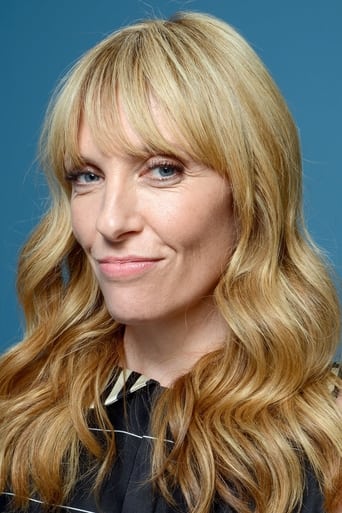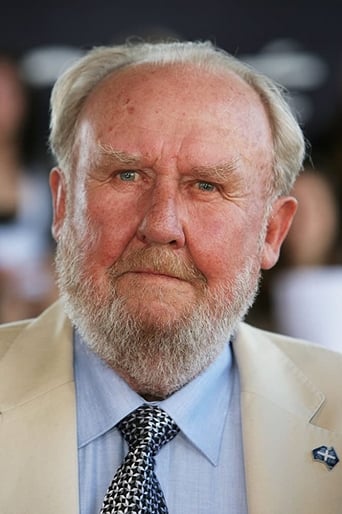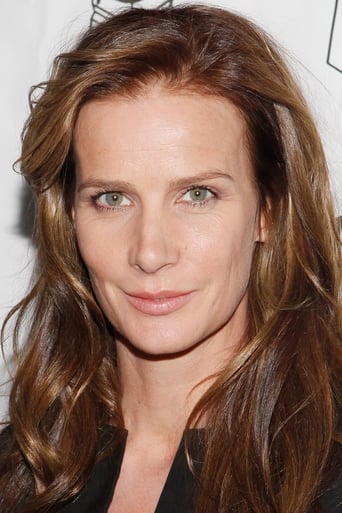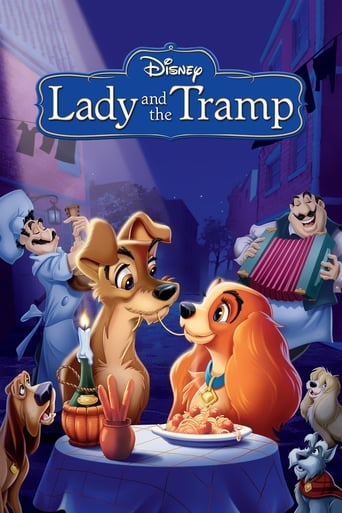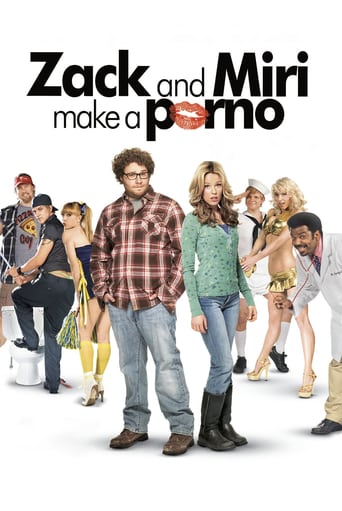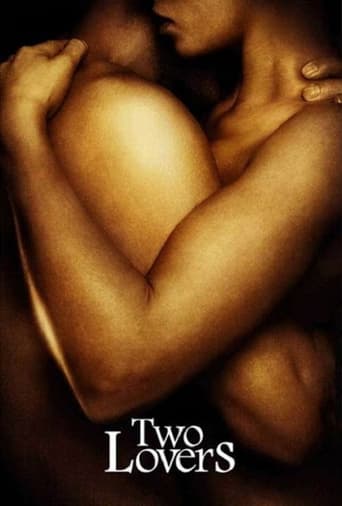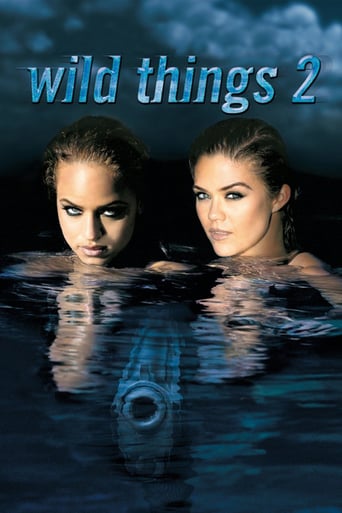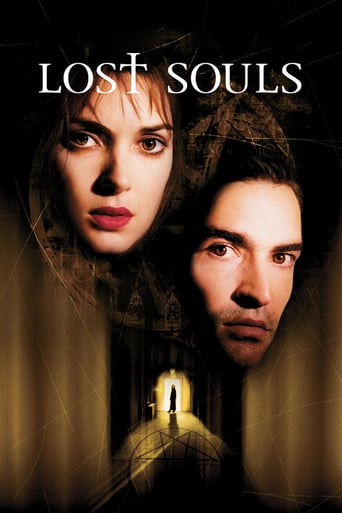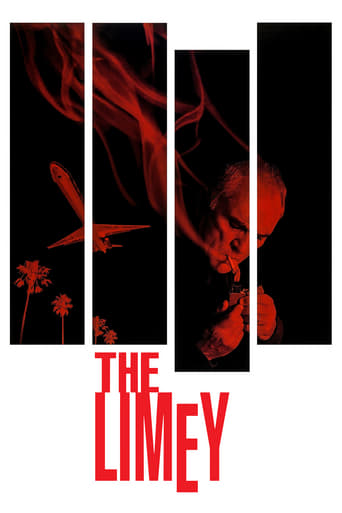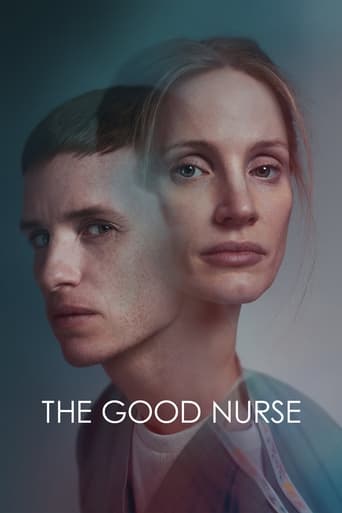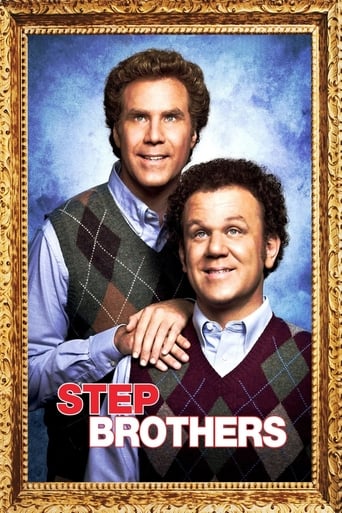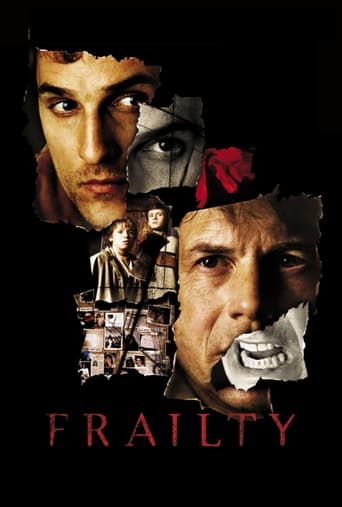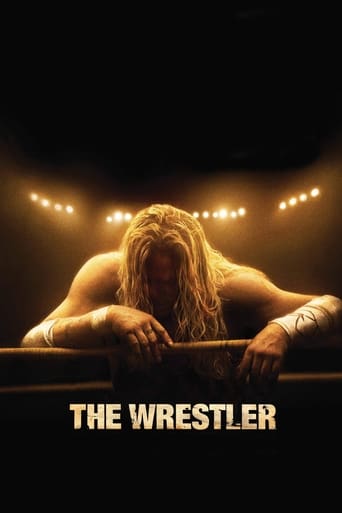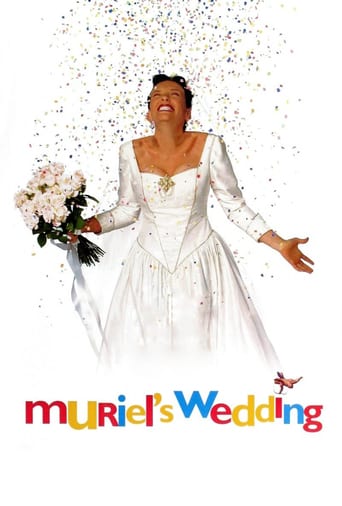
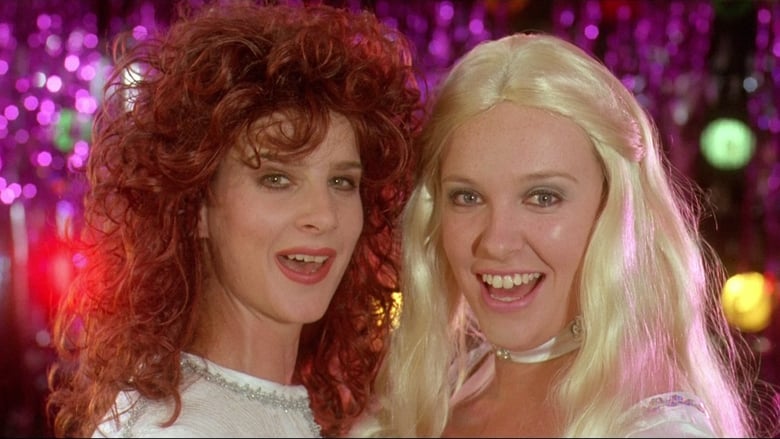
Muriel's Wedding (1995)
 Watch Now
Watch Now








A young social outcast in Australia steals money from her parents to finance a vacation where she hopes to find happiness, and perhaps love.
Watch Trailer
Cast


Similar titles
Reviews
Like the great film, it's made with a great deal of visible affection both in front of and behind the camera.
The acting in this movie is really good.
This film is so real. It treats its characters with so much care and sensitivity.
All of these films share one commonality, that being a kind of emotional center that humanizes a cast of monsters.
Muriel's Wedding is one of those films for the downtrodden, the rejects, the less than attractive members of the student body, the ones who never amount to anything. It is for the Muriels who would rather be Mariel, pretty and famous and successful. Do we know how much of Muriel's failures are a result of her neglectful and emotionally abusive upbringing at the hands of her prideful father? P.J. Hogan never gives us a straight answer - it isn't nearly as easy or simple in real life. What is rather wonderful is an early Toni Collete's blossoming performance. She is one of those people where you can almost make out the scars of acne (not quite literally), braces and bullying of high school. Before the glamour and acclaim there was this girl, the slightly chubby underachiever who sloppily applies too much red lipstick and has carved out a happy place comprised entirely of ABBA songs. And Collete's performance is so painfully naive and oblivious that even as she gets soullessly married for money and prestige she has a huge grin on her face. It's big enough to ignore her mother. The great thing about Muriel's Wedding is that it takes its story to that expected end - the high powered couple, the glamour wedding, the middle finger to the high school bullies. But it also realises and accepts that this isn't something that Muriel is fit for at all. There is the crazy, pixie-haired punk Rhonda whom has actually broken out of the mould in a much more natural and independent way - she has the intelligence to know that high school doesn't really matter anyway, and that long held grudges and deep-seated desires to one-up those bullies and prove you are better than them are silly in the end. She mouths them off in the reunion, but it's not some defining, cathartic moment it would be for Muriel. It is billed first as an offbeat comedy - and it is funny too, maybe funnier for the non-Australian audiences who will relish the way these characters cruelly and frankly cut straight to the chase, and the heavy, outrageous accents which do not give away a hint of sympathy or false pretense. But it is also dark in some spots, and painfully real. Muriel's father has long aspired to run for government, and bullied his children for never ever reaching his (rather mediocre high) achievements. We see how this has been internalised and normalised; after cruelly announcing his divorce and lamenting his shambles of a family, Betty lets off an agonising "STOP DISAPPOINTING YOUR FATHER" because she has been trained so diligently to deflect the blame away from her husband. Admittedly it does take a few wrong turns in getting there. The whole Van Arkle Olympics plot is pretty ludicrous and it takes a horrid sex scene for Muriel to actually come to her senses and for him to... fall in love with her? The whole tone of broaching that physical barrier is pretty ridiculous in fact; Muriel doesn't really know how to react when a boy actually shows her attention, so she bursts out in laughter while making out and in a rather crass bit of comedy, shrieks at her first sighting of a penis. But of course this sort of stuff comes with the package. You reap what you sow. And Muriel's Wedding recognises that a big, lavish wedding may indeed not always be the solution or the path to the happy ending.
I'm so happy I was lucky enough to revisit this splendid film. i remember seeing it when I was younger. But now it feels like a different movie. it's even better than I remember it and that may be because I can truly appreciate the films message more prominently. The film centers on a young woman named Muriel played by a young Toni Collette who gained 40 lbs. for the role. She's sort of an odd duckling whose friends don't appreciate her and constantly put her down. And that goes the same for her verbally abusive father as well. After her friends decide to "break up" with her she finds an old acquaintance from high school while on a vacation and they become best friends. She tells a lie and than it leads to another and another. Her dreams of getting married consume her completely and I'm sure you can guess what ultimately happens. Let me say that this movie is hysterically funny but it does move into a very depressing stage but really has some very important things to say. About self worth, following your dreams, society's impressions on how we should live our lives, friendship and finding a way to truly be happy. I'm sure it sounds a bit corny but it's all handled with an unexpected grace which really make it the one of a kind film it is and one of the best movies I've ever seen!
Uneven comedy-drama from writer-director P.J. Hogan offers some proof of Hogan's emerging talent, but never really reaches its potential due to the flat central character. Toni Collette plays Muriel, a bored dishrag from Porpoise Spit, Australia. She aimlessly spends her time listening to ABBA music and fantasizing about a wedding day that may never be, while enduring the company of her undisciplined siblings and a gaggle of catty female friends who keep her around as a verbal punching bag. Her father is an obnoxious philandering local politician who takes his family for granted and her mother is a zoned out manic depressive, who only barely seems to realize that the glamour puss cosmetic saleswoman that keeps crashing family night is her husband's mistress. After Muriel steals money from her parents to go on a vacation, she hooks up with a free-spirited old acquaintance and embarks on a journey of discovery that changes her life and might bring her the wedding day she longs for. Marketed as a comedy, the film has some funny moments, but a lot of what goes on is surprisingly somber. Many of the people that inhabit the landscape of Muriel's life are either mean-spirited and nasty or colorless victims worn down by the ordeals. The film perks up substantially with the arrival of Rachel Griffiths as the free-spirited friend, but then her character is somewhat sidelined by being stricken as a paraplegic. Director Hogan keeps things moving along and gets lots of mileage out of the ABBA soundtrack, but his shifts between drama and comedy are clumsy. Worse, the film can do nothing about the fact that its central character of Muriel is just not that interesting or worthwhile an individual. We initially have empathy for Muriel in the opening moments having to cope with her monstrous family and frenemies. Unfortunately, she spends the majority of the film floating from one misadventure to another without really gleaning much in the way of knowledge or wisdom. Following the crippling of her friend, Muriel moves on with barely a look back, leaving behind both the woman who enabled her to strike out on a new life and a nice guy who genuinely loves her. She changes her name to Mariel and finds herself the recipient of a deal to marry a hunky Olympic diver Daniel Lapaine, who needs to solidify his Australian citizenship, and gets her wedding day. Collette is normally a fine actress, but she does very little with Muriel here. She spends much of the film blank of face, as though shell-shocked at life. She does better with some of the comical moments – the scene where she bursts into joyous laughter when she gets her first glimpse of her fiancé of convenience emerging from the pool in a tiny Speedo is funny both because of her uncharacteristic reaction and Lapaine's look of terror when he realizes this is his future wife. Unfortunately, Muriel never seems to become very decisive and even the film's closing moments have her seem like a drifter. We are apparently supposed to be content that Muriel has grown as a person because she changes her name back to Muriel, tells her dad to be a better father to her siblings after her mother's suicide and returns to help Griffiths. While the latter particularly shows some promise, one cannot overlook how Muriel has treated Lapaine in this process. When Muriel's mother dies, Lapaine reveals himself to be a genuinely nice guy and stands by her in her hour of need and even starts a physical relationship with her. But when Muriel decides that she needs to change her life again, she reneges on their business deal, keeps the money and cavalierly leaves him much as she did her supporters earlier in the film. She never does re-establish contact with the other guy whose heart she broke and who keeps lingering around the edges of the film, and one cannot help but think that in another month she will decide to change her life again and abandon Griffiths for a second time. The film launched the international career of Colette and has a staunch following, but while there are highlights, some directorial promise from Hogan and some good supporting acting, the average viewer may wisely wonder why Muriel is worth much consideration.
One of the hallmarks, and one of the strengths, of the Australian cinema, is originality, the ability to produce films quite different from anything in the Hollywood or British mainstream. This ability dates back to the days of "Walkabout", "Picnic at Hanging Rock" and "Crocodile Dundee", and the offbeat comedy "Muriel's Wedding" from 1994 falls within the same tradition. It also falls within the recent Australian tradition of films satirising life in the provinces while retaining a certain affection for those that live there. ("Sweetie" and "Opal Dreams" are other examples). The film was written and directed by Paul J. Hogan, not to be confused with his namesake Paul Hogan of "Crocodile Dundee" fame.The main character, Muriel Heslop, is a young woman in her early twenties from the fictitious Queensland seaside town of Porpoise Spit. Her life is dominated by her tyrannical father Bill, an ambitious and corrupt local politician, whose family seem crushed by the weight of his expectations. Muriel's mother Betty is a downtrodden, subservient wife and her siblings are lazy, unambitious and permanently unemployed, with no interests in life other than watching television. She herself is overweight, naïve and socially gauche; she is mocked by her contemporaries, even those she considers her friends, for her weight, her lack of social graces, her lack of fashion sense, and her obsession with the music of ABBA, regarded as hopelessly untrendy by the mid-nineties. (Several ABBA songs feature on the soundtrack). Although she has never had a serious boyfriend, her one great ambition is for a glamorous wedding.Muriel's life changes when, while on holiday, she makes a friend named Rhonda who, unlike her Porpoise Spit contemporaries, is prepared to accept Muriel for what she is. Muriel leaves her family to set up house in Sydney with Rhonda and eventually achieves her dream of a big white wedding, although the circumstances are rather unusual. Muriel's husband is David, a handsome young South African swimmer, whom she hardly knows but who needs an Australian passport in order to swim for his adopted country in the Olympics. (This plot line suggests that the film was originally conceived several years earlier, when South Africa was banned from international sport because of apartheid).Toni Collette was relatively unknown in 1994, but this was the part that first brought her to international attention, and she gives an excellent performance, making Muriel an appealing heroine despite her social awkwardness. There are some other good performances, such as from Bill Hunter as Muriel's autocratic father, but I was less taken by Rachel Griffiths as Rhonda, even though I have admired Griffiths in other films such as "Hilary and Jackie". Although she is supposed to be a likable character, Muriel's one true friend who loves her for what she is and who copes bravely with illness and disability, I found the foul-mouthed, promiscuous Rhonda a bit too abrasive to be sympathetic.Although "Muriel's Wedding" is a comedy, and in places a very funny one, it also deals with some serious themes, and avoids Hollywood sentiment. (Hollywood would doubtless have made Muriel slimmer and prettier, would given greater prominence to David and would have turned the film into a rom-com in which the two young people end up falling madly in love). It is essentially a coming-of-age story, what in German would be called a "Bildungsroman". It is the story of the heroine's discovery of self-confidence rather than self-loathing, of how she learns to accept herself for what she is. It is notable that for much of the film she insists on being called "Mariel", only to revert to "Muriel" by the end. Behind the humour and the satire the film is often touching and poignant. 7/10


